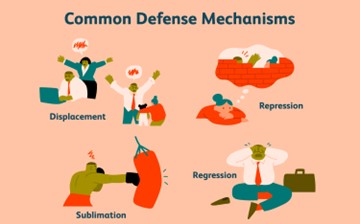During an interdisciplinary treatment team meeting, a short-term outcome is established for a client with depressive symptoms. Which SMART goal is most appropriate?
The client will make statements that he feels less depressed by the end of the first day of admission.
The client will express and demonstrate increases in energy by the third day of admission.
The client will reduce self-rating on the depression scale by 10% by the second day of admission.
The client will demonstrate increased interaction with other clients by discharge.
The Correct Answer is C
Explanation: SMART is an acronym for Specific, Measurable, Achievable, Relevant, and Time-bound. A SMART goal should be specific, clear, well-defined, measurable, attainable or achievable, relevant, and time-bound.
Option (a) is not specific, measurable, or achievable. It does not provide a clear target or timeline for the client's improvement, and it may not be attainable for some clients to feel less depressed after only one day of admission.
Option (b) is specific and measurable, but it may not be achievable or relevant for all clients. Increases in energy are not always a direct indicator of improved depressive symptoms.
Option (c) is specific, measurable, achievable, and relevant. A 10% reduction in the self-rating of the depression scale is a clear and well-defined goal that can be easily measured. It is also achievable and relevant as it directly addresses the client's depressive symptoms.
Option (d) is specific, measurable, achievable, and relevant. However, it is not time-bound, which means there is no clear timeline for the client's improvement. It is also not as direct or measurable as option (c).
Nursing Test Bank
Naxlex Comprehensive Predictor Exams
Related Questions
Correct Answer is A
Explanation
Disassociation is a defense mechanism that involves mentally separating oneself from a stressful or traumatic situation in order to maintain a sense of calm and focus. In this scenario, the nurse is able to block out the sirens and alarms, which may be causing stress and anxiety, and maintain a calm and focused demeanor while speaking with the client's family. This is an adaptive use of disassociation because it allows the nurse to provide effective care and support to the family despite the chaotic environment.
Denial is a defense mechanism that involves denying or minimizing the existence of a stressful or traumatic situation. Rationalization involves justifying or excusing one's behavior or actions. Altruism involves selflessly helping others as a way of dealing with one's own problems. In this scenario, none of these defense mechanisms are being used by the nurse.
Correct Answer is A
Explanation
Sublimation is a defense mechanism in which socially unacceptable impulses or drives are redirected into socially acceptable activities or behavior. For example, someone who has aggressive tendencies may channel those impulses into playing competitive sports, or someone who has sexual desires may channel those impulses into creative work like painting or writing.
Regression refers to a defense mechanism where an individual retreats to an earlier stage of development, such as acting like a child when under stress. Undoing is a defense mechanism in which an individual tries to undo or negate a previous action or thought, such as making up for a mistake by performing a good deed. Suppression is a defense mechanism where an individual consciously avoids thinking about or dealing with certain thoughts or emotions.

Whether you are a student looking to ace your exams or a practicing nurse seeking to enhance your expertise , our nursing education contents will empower you with the confidence and competence to make a difference in the lives of patients and become a respected leader in the healthcare field.
Visit Naxlex, invest in your future and unlock endless possibilities with our unparalleled nursing education contents today
Report Wrong Answer on the Current Question
Do you disagree with the answer? If yes, what is your expected answer? Explain.
Kindly be descriptive with the issue you are facing.
